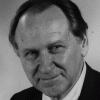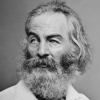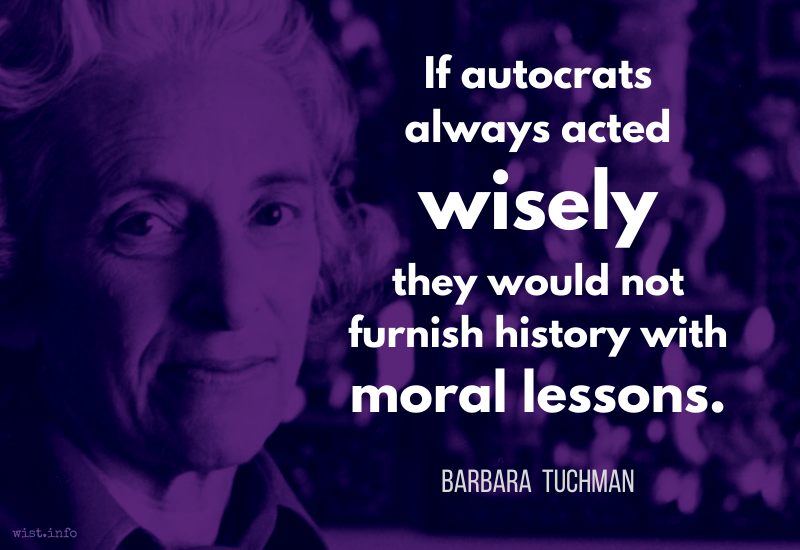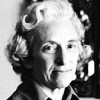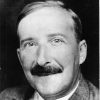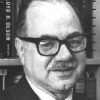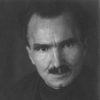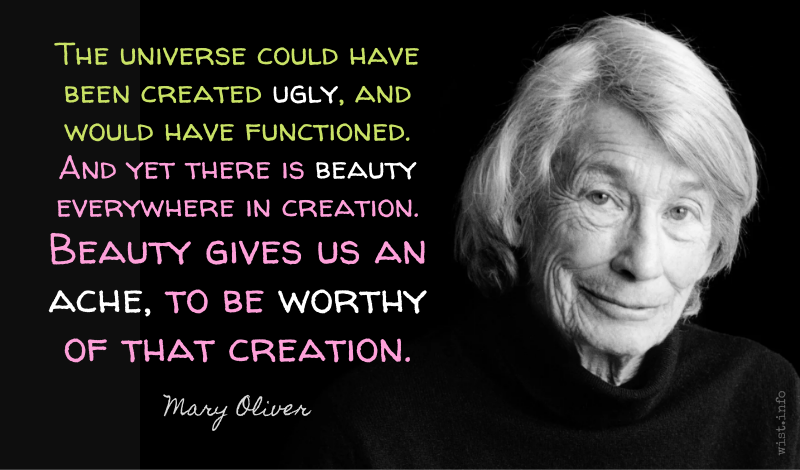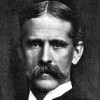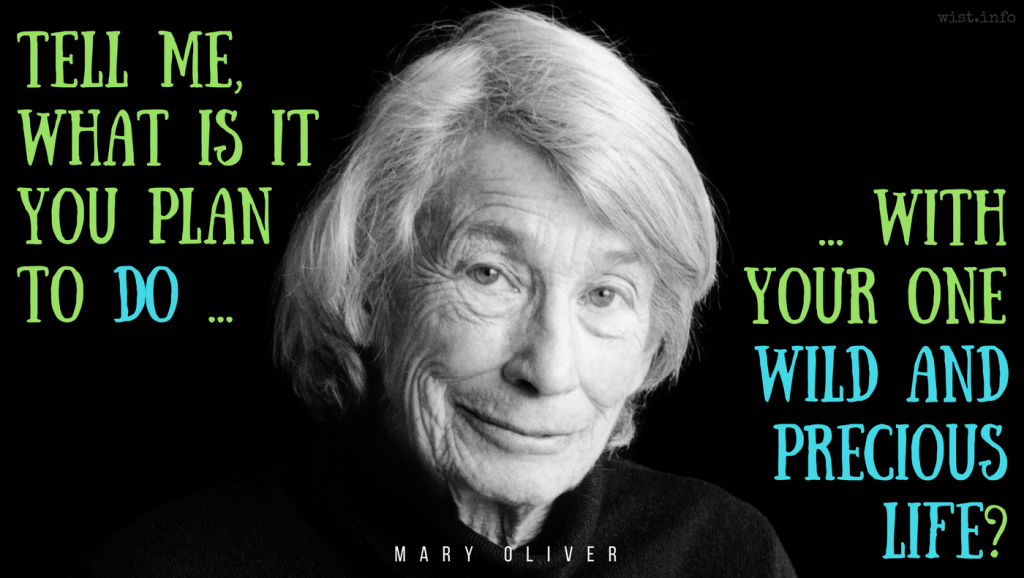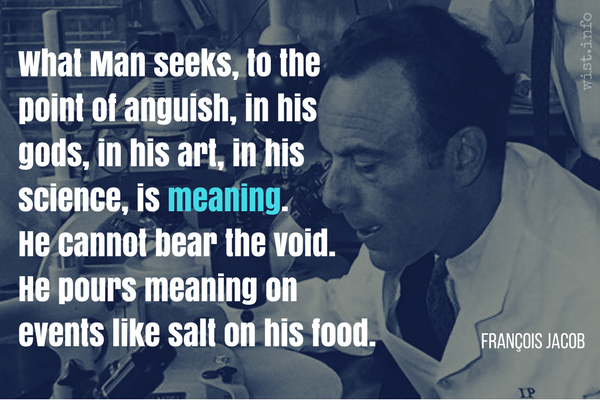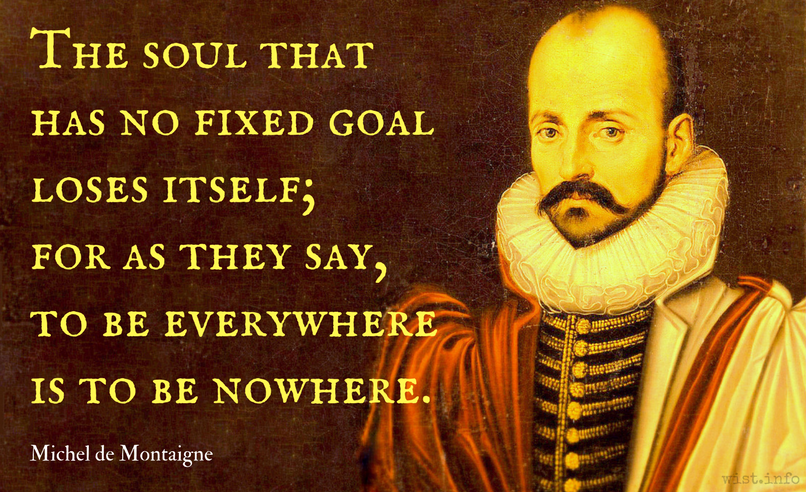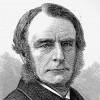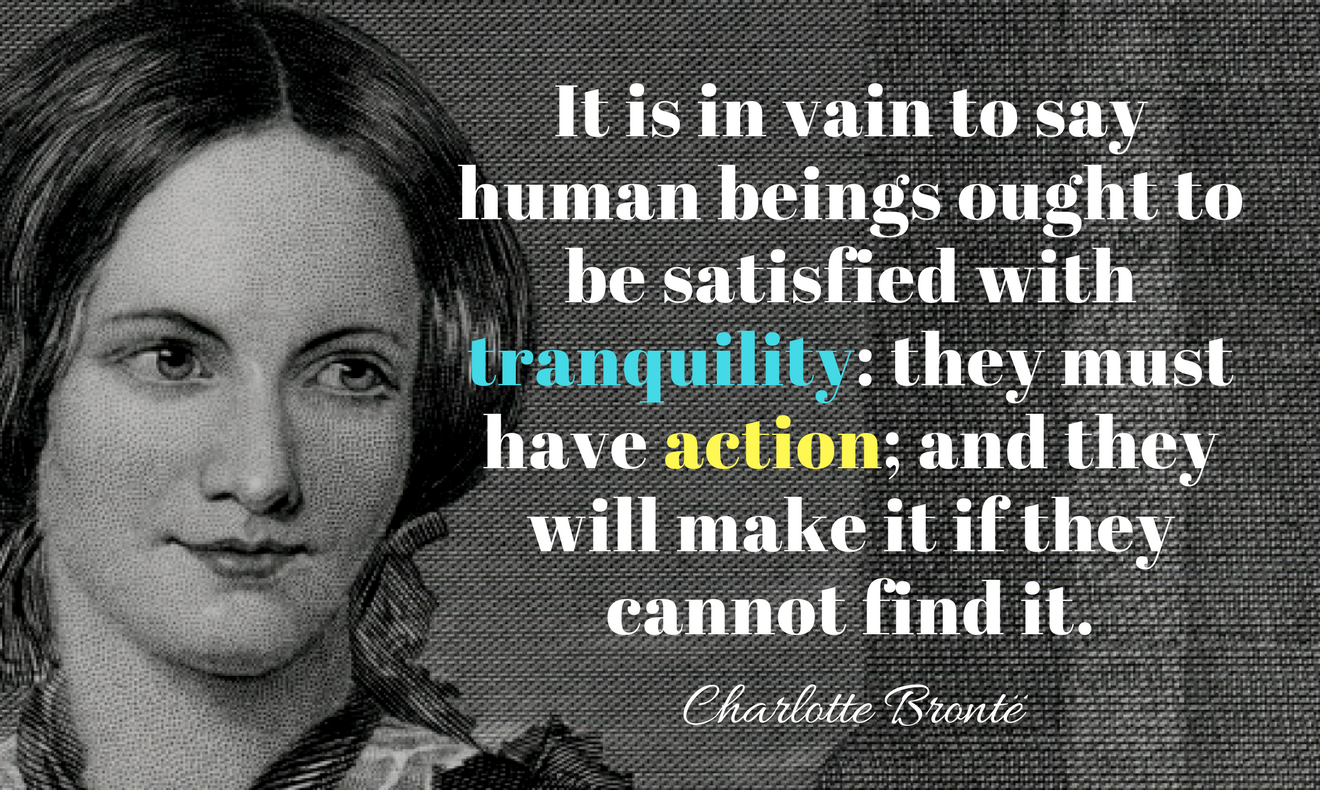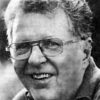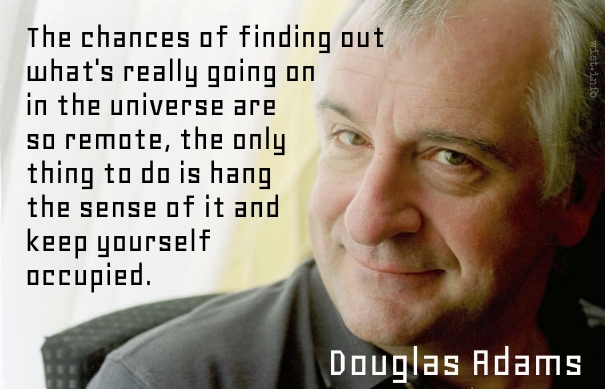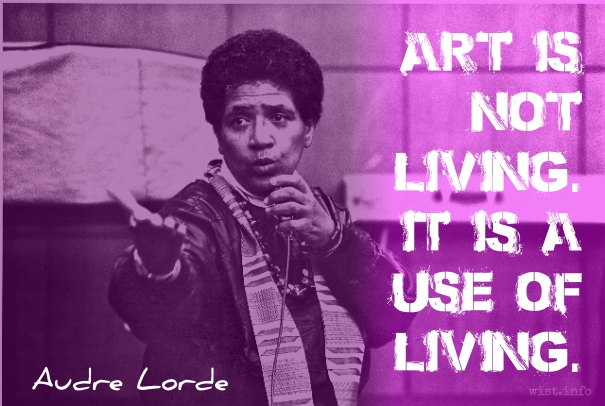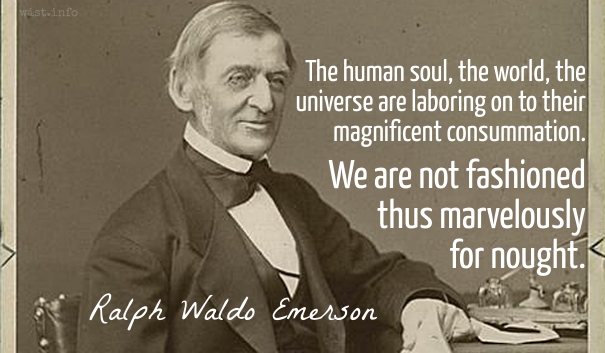Make love your aim, not biblical inerrancy, nor purity nor obedience to holiness codes. Make love your aim, for
“Though I speak with the tongues of men and of angels” — musicians, poets, preachers, you are being addressed.
“and though I … understand all mysteries, and all knowledge” — professors, your turn,
“and though I bestow all my goods to feed the poor” — radicals take note;
“and though I give my body to be burned” — the very stuff of heroism;
“and have not charity, it profiteth me nothing.” (1 Cor. 13:1-3 KJV).I doubt if any other scriptures of the world there is a more radical statement of ethics. If we fail in love, we fail in all things else.
William Sloane Coffin, Jr. (1924-2006) American minister, social activist
Credo, “Faith, Hope, Love” (2004)
(Source)
Quotations about:
purpose
Note not all quotations have been tagged, so Search may find additional quotes on this topic.
In our time we have come to live with moments of great crisis. Our lives have been marked with debate about great issues; issues of war and peace, issues of prosperity and depression. But rarely in any time does an issue lay bare the secret heart of America itself. Rarely are we met with a challenge, not to our growth or abundance, our welfare or our security, but rather to the values and the purposes and the meaning of our beloved Nation.
The issue of equal rights for American Negroes is such an issue. And should we defeat every enemy, should we double our wealth and conquer the stars, and still be unequal to this issue, then we will have failed as a people and as a nation.Lyndon B. Johnson (1908-1973) American politician, educator, US President (1963-69)
Speech (1965-03-15), “The American Promise,” Joint Session of Congress [06:27]
(Source)
For what do we live, but to make sport for our neighbors and laugh at them in our turn?
Just as you drifted through an entire day without a plan and accomplished nothing, some people drift through their entire lives. They do it one day at a time, one week at a time, and one month at a time. The months run into years and span a life. It happens so gradually that they are unaware of how their lives are slipping by them until it’s too late.
When you live with a joyful sense of purpose, when you infuse your life with a greater purpose beyond your individual self, every aspect of your karma can become a brilliant facet of your mission. You can transform sorrow and adversity of any sort into joy, stability, health, and prosperity. By changing poison into medicine and accomplishing your inner revolution, you can use every experience of karma to encourage others who suffer from the same problems that you overcame.
You can become an ambassador of hope, an essential and radiant treasure of humanity, in which you recognize that all who have ever lived are members of your extended family.
As you continue to spread light in this way, actively doing good in the world, that energy will come back to you in abundant positivity. When you refuse to perpetuate any bad that has been done to you, you can free yourself from the chains of negativity.
Tina Turner (1939-2023) American singer, songwriter, actress [b. Anna Mae Bullock]
Happiness Becomes You, ch. 8 (2020)
(Source)
Come to think of it, I don’t know that love has a point, which is what makes it so glorious. Sex has a point, in terms of relief and, sometimes, procreation, but love, like all art, as Oscar said, is quite useless. It is the useless things that make life worth living and that make life dangerous too: wine, love, art, beauty. Without them life is safe, but not worth bothering with.
Stephen Fry (b. 1957) British actor, writer, comedian
Moab Is My Washpot, “Falling In,” ch. 6 (1997)
(Source)
Referencing Oscar Wilde from the preface of The Picture of Dorian Gray (1890): "All art is quite useless".
Eating without conversation is only stoking.
Marcelene Cox (1900-1998) American writer, columnist, aphorist
“Ask Any Woman” column, Ladies’ Home Journal (1943-06)
(Source)
Reading those turgid philosophers here in these remote stone buildings may not get you a job, but if those books have forced you to ask yourself questions about what makes life truthful, purposeful, meaningful, and redeeming, you have the Swiss Army Knife of mental tools, and it’s going to come in handy all the time.
Bill Watterson (b. 1958) American cartoonist
Commencement Address, Kenyon College (1990-05-20)
(Source)
They never fail who die
In a great cause.George Gordon, Lord Byron (1788-1824) English poet
Marino Faliero, Act 2, sc. 2 [Israel Bertuccio] (1821)
(Source)
Anyway, one of the first things you learn in space is not to thrash. If you have nothing constructive to do, the most constructive thing you can do is often nothing at all. In a mindful sense, I mean. Thrashing is the thing that gets people killed. Not sitting still.
Elizabeth Bear (b. 1971) American author [pseud. for Sarah Bear Elizabeth Wishnevsky]
Ancestral Night (2019)
(Source)
Composition is a discipline; it forces us to think. If you want to “get in touch with your feelings,” fine — talk to yourself, we all do. But if you want to communicate with another thinking human being, get in touch with your thoughts. Put them in order; give them a purpose; use them to persuade, to instruct, to discover, to seduce.
William Safire (1929-2009) American author, columnist, journalist, speechwriter
Commencement Address, Syracuse University (13 May 1978)
(Source)
Reprinted in On Language, "Commencement Address" (1980).
Remember that you can’t necessarily sanctify a cause by virtue of the fact that men die for it. A death in a worthless or even questionable cause is a pointless, meaningless, tragically premature death.
Rod Serling (1924-1975) American screenwriter, playwright, television producer, narrator
Commencement Address, Ithaca College, New York (13 May 1972)
(Source)
Oh me! Oh life! of the questions of these recurring,
Of the endless trains of the faithless, of cities fill’d with the foolish,
Of myself forever reproaching myself, (for who more foolish than I, and who more faithless?)
Of eyes that vainly crave the light, of the objects mean, of the struggle ever renew’d,
Of the poor results of all, of the plodding and sordid crowds I see around me,
Of the empty and useless years of the rest, with the rest me intertwined,
The question, O me! so sad, recurring — What good amid these, O me, O life?Answer.
That you are here — that life exists and identity,
That the powerful play goes on, and you may contribute a verse.Walt Whitman (1819-1892) American poet
“O Me! O Life!” Leaves of Grass, Book 20 “By the Roadside” (1867 ed)
(Source)
Technological advance is rapid. But without progress in charity, technological advance is useless. Indeed, it is worse than useless. Technological progress has merely provided us with more efficient means for going backwards.
Aldous Huxley (1894-1963) English novelist, essayist and critic
Ends and Means: An Inquiry Into the Nature of Ideals, ch. 1 (1937)
(Source)
This was unwise, but if autocrats always acted wisely they would not furnish history with moral lessons.
Barbara W. Tuchman (1912-1989) American historian and author
A Distant Mirror, ch. 21 “The Fiction Cracks” (1978)
(Source)
On young King Richard II's giving substantial offices and lands to his friend and mentor, the Earl of Oxford, in so doing making an enemy of the Duke of Gloucester.
When vision fails
Direction is lost.When direction is lost
Purpose may be forgotten.When purpose is forgotten
Emotion rules alone.When emotion rules alone,
Destruction … destruction.
Nothing contributes so much to tranquilize the mind as a steady purpose, — a point on which the soul may fix its intellectual eye.
Mary Wollstonecraft (1759-1797) English social philosopher, feminist, writer
Frankenstein, Letter 1 (1818)
(Source)
More discussion of the history of this quotation: Nothing Contributes So Much To Tranquillize the Mind As a Steady Purpose,—a Point On Which the Soul May Fix Its Intellectual Eye – Quote Investigator
To laugh often and much; to win the respect of intelligent people and the affection of children; to earn the appreciation of honest critics and endure the betrayal of false friends; to appreciate beauty, to find the best in others; to leave the world a bit better, whether by a healthy child, a garden patch, or a redeemed social condition, to know even one life has breathed easier because you have lived. This is to have succeeded.
Ralph Waldo Emerson (1803-1882) American essayist, lecturer, poet
(Misattributed)
This is regularly attributed to Emerson, but has not been found in his work. The original appears to be a contest essay written by Bessie A. Stanley of Lincoln, Nebraska in 1905:
He has achieved success who has lived well, laughed often and loved much; who has gained the respect of intelligent men and the love of little children; who has filled his niche and accomplished his task; who has left the world better than he found it, whether by an improved poppy, a perfect poem, or a rescued soul; who has never lacked appreciation of earth’s beauty or failed to express it; who has always looked for the best in others and given the best he had; whose life was an inspiration; whose memory a benediction.
In 1951, Albert E. Wiggam, a newspaper columnist, wrote this similar passage, claiming it was an abridged version of something Emerson wrote:
To laugh often and love much; to win the respect of intelligent persons and the affection of children; to earn the approbation of honest critics and endure the betrayal of false friends; to appreciate beauty. To find the best in others; to give one’s self; to leave the world a bit better, whether by a healthy child, a garden patch or a redeemed social condition; to have played and laughed with enthusiasm and sung with exaltation; to know even one life has breathed easier because you have lived -- this is to have succeeded.
Variations of both quotations exist, but Wiggam seems to be the source of the Emerson reference. This was later cemented by Ann Landers producing the variation at the top of this post, citing Emerson but not Wiggam. She also at other times attributed it to Harry Emerson Fosdick and Bessie A. Stanley.
More information here:
Boredom therefore can arise from the cessation of habitual functions, even though these may be boring too. It is also the shriek of unused capacities, the doom of serving no great end or design, or contributing to no master force.
But no moral philosopher, from Aristotle to Aquinas, to John Locke and Adam Smith, divorced economics from a set of moral ends or held the production of wealth to be an end in itself; rather it was seen as a means to the realization of virtue, a means of leading a civilized life.
It’s a blessing to die for a cause, because you can so easily die for nothing.
Andrew Young (b. 1932) American politician, diplomat, activist
Interview by Peter Ross Range, Playboy (Jul 1977)
(Source)
Writing isn’t about making money, getting famous, getting dates, getting laid, or making friends. In the end, it’s about enriching the lives of those who will read your work, and enriching your own life, as well. It’s about getting up, getting well, and getting over. Getting happy, okay? Getting happy. […] Writing is magic, as much the water of life as any other creative art. The water is free. So drink. Drink and be filled up.
It is of the nature of desire not to be satisfied, and most men live only for the gratification of it.
[ἄπειρος γὰρ ἡ τῆς ἐπιθυμίας φύσις, ἧς πρὸς τὴν ἀναπλήρωσιν οἱ πολλοὶ]
Aristotle (384-322 BC) Greek philosopher
Politics [Πολιτικά], Book 2, ch. 7, sec. 19 / 1267b.4 [tr. Jowett (1885)]
(Source)
Original Greek. Alt. trans.:
- "For it is the nature of our desires to be boundless, and many live only to gratify them." [tr. Ellis (1912)]
- "For appetite is in its nature unlimited, and the majority of mankind live for the satisfaction of appetite." [tr. Rackham (1924)]
- "For the nature of desire is without limit, and it is with a view to satisfying this that the many live. [tr. Lord (1984)]
Three kinds of souls, three prayers:
1) I am a bow in your hands, Lord. Draw me, lest I rot.
2) Do not overdraw me, Lord. I shall break.
3) Overdraw me, Lord, and who cares if I break.Nikos Kazantzakis (1883-1957) Greek writer and philosopher
Report to Greco, Epigraph (1965) [tr. Bien (1973)]
(Source)
In the Epilogue, this is repeated: "There are three kinds of souls, three kinds of prayers. One: I am a bow in your hands, Lord. Draw me lest I rot. Two: Do not overdraw me, Lord. I shall break. Three: Overdraw me, and who cares if I break!"
DEXTER: You know, before I got married, Emily used to come by sometimes and help me clean out my apartment. Well, I asked her, “How come you’re so eager to help clean up my place when your place is just as bad?” She said, “Because cleaning up your place helps me to forget what a mess I’ve made of mine, and — when I sweep my floor, all I’ve done is sweep my floor. But, when I help you clean up your place, I am helping you.”
I feel my heart glow with an enthusiasm which elevates me to heaven, for nothing contributes so much to tranquillize the mind as a steady purpose — a point on which the soul may fix its intellectual eye.
Good luck is another name for tenacity of purpose.
Ralph Waldo Emerson (1803-1882) American essayist, lecturer, poet
“Wealth,” The Conduct of Life, ch. 3 (1860)
(Source)
You can have the other words — chance, luck, coincidence, serendipity. I’ll take grace. I don’t know what it is exactly, but I’ll take it.
The universe could have been created ugly, and would have functioned. And yet there is beauty everywhere in creation. Beauty gives us an ache, to be worthy of that creation.
Mary Oliver (1935-2019) American poet
Comments at Wellesley College (20 Oct 2010)
(Source)
The last phrase is frequently paraphrased, "We need beauty because it makes us ache to be worthy of it."
O’Brien knew everything. A thousand times better than Winston, he knew what the world was really like, in what degradation the mass of human beings lived and by what lies and barbarities the Party kept them there. He had understood it all, weighed it all, and it made no difference: all was justified by the ultimate purpose. What can you do, thought Winston, against the lunatic who is more intelligent than yourself, who gives your arguments a fair hearing and then simply persists in his lunacy?
George Orwell (1903-1950) English writer [pseud. of Eric Arthur Blair]
Nineteen Eighty-Four (1949)
(Source)
One of the things I like best about animals in the wild is that they’re always off on some errand. They have appointments to keep. It’s only we humans who wonder what we’re here for.
Diane Ackerman (b. 1948) American poet, author, naturalist
“In Praise of Bats,” The Moon by Whale Light (1991)
(Source)
In short, Mort was one of those people who are more dangerous than a bag full of rattlesnakes. He was determined to discover the underlying logic behind the universe. Which was going to be hard, because there wasn’t one.
There is a loftier ambition than merely to stand high in the world. It is to stoop down and lift mankind a little higher. There is a nobler character than that which is merely incorruptible. It is the character which acts as an antidote and preventive of corruption.
Henry Van Dyke (1852-1933) American clergyman and writer
“Salt,” Baccalaureate Sermon, Harvard University (19 Jun 1898)
(Source)
What Man seeks, to the point of anguish, in his gods, in his art, in his science, is meaning. He cannot bear the void. He pours meaning on events like salt on his food. He denies that life bounces along at random, at the mercy of events, in sound and in fury. He wants it always to be directed, aimed toward a goal, like an arrow.
François Jacob (1920-2013) French biologist, Nobel prize winner in Medicine
The Statue Within: An Autobiography (1987) [tr. Philip (1988)]
(Source)
There may be no good reason for things to be the way they are.
Alain de Botton (b. 1969) Swiss-British author
The Consolations of Philosophy, ch. 1 “Consolations for Unpopularity,” sec. 4 (2000)
(Source)
Man is so built that he cannot imagine his own death. This leads to endless invention of religions. While this conviction by no means proves immortality to be a fact, questions generated by it are overwhelmingly important. The nature of life, how ego hooks into the body, the problem of ego itself and why each ego seems to be the center of the universe, the purpose of life, the purpose of the universe — these are paramount questions, Ben; they can never be trivial. Science hasn’t solved them — and who am I to sneer at religions for trying, no matter how unconvincingly to me? Old Mumbo Jumbo may eat me yet; I can’t rule him out because he owns no fancy cathedrals. Nor can I rule out one godstruck boy leading a sex cult in an upholstered attic; he might be the Messiah. The only religious opinion I feel sure of is this: self-awareness is not just a bunch of amino acids bumping together!
Robert A. Heinlein (1907-1988) American writer
Stranger in a Strange Land, Part 4, ch. 33 [Jubal] (1961)
(Source)
In the "uncut" original version (1960): "Self-aware man is so built that he cannot believe in his own extinction ... and this automatically leads to endless invention of religions. While this involuntary conviction of immortality by no means proves immortality to be a fact, the questions generated by this conviction are overwhelmingly important ... whether we can answer them or not, or prove what answers we suspect. The nature of life, how the ego hooks into the physical body, the problem of the ego itself and why each ego seems to be the center of the universe, the purpose of life, the purpose of the universe -- these are paramount questions Ben; they can never be trivial. Science can't, or hasn't, coped with any of them -- and who am I to sneer at religions for trying to answer them, no matter how unconvincingly to me? Old Mumbo Jumbo may eat me yet; I can't rule Him out because He owns no fancy cathedrals. Nor can I rule out one godstruck boy leading a sex cult in an upholstered attic; he might be the Messiah. The only religious opinion that I feel sure of is this: self-awareness is not just a bunch of amino acids bumping together!"
The soul that has no fixed goal loses itself; for as they say, to be everywhere is to be nowhere.
[L’âme qui n’a point de but établi, elle se perd: car comme on dit, c;est n’ètre en aucun lieu que d’être partout.]
Michel de Montaigne (1533-1592) French essayist
Essays, Book 1, ch. 8 “Of Idleness” (1580-88) [tr. Frame (1943)]
(Source)
Alt. trans.: "The soul that has no established aim loses itself, for, as it is said, 'He who lives everywhere, lives nowhere.'" [tr. Cotton (1877)]
Alt. trans.: "When the soul is without a definite aim, she gets lost; for, as they say, if you are everywhere you are nowhere." [tr. Screech (1987)]
The proverb referenced is Martial.
An aim in life is the only fortune worth the finding; and it is not to be found in foreign lands, but in the heart itself.
Robert Louis Stevenson (1850-1894) Scottish essayist, novelist, poet
The Amateur Emigrant, ch. 4 “Steerage Types” (1895)
(Source)
Let us be content to do little, if God sets us at little tasks. It is but pride and self-will which says, “Give me something huge to fight, — and I should enjoy that — but why make me sweep the dust?”
Charles Kingsley (1819-1875) English clergyman, historian, essayist, novelist (pseud. "Parson Lot")
Letter, “To a lady who consulted him about Sisterhoods” (24 Jul 1854)
(Source)
It is in vain to say human beings ought to be satisfied with tranquility: they must have action; and they will make it if they cannot find it.
Charlotte Brontë (1816-1855) British novelist [pseud. Currer Bell]
Jane Eyre, ch. 12 [Jane] (1847)
(Source)
There is a difference between tragedy and blind brutal calamity. Tragedy has meaning, and there is dignity in it. Tragedy stands with its shoulders stiff and proud. But there is no meaning, no dignity, no fulfillment, in the death of a child.
Art is not living. It is a use of living.
Audre Lorde (1934-1992) American writer, feminist, civil rights activist
“My Words Will Be There”
(Source)
This is the whole of Christianity. There is nothing else. It is so easy to get muddled about that. It is easy to think that the Church has a lot of different objects — education, building, missions, holding services. Just as it is easy to think the State has a lot of different objects — military, political, economic, and what not. But in a way things are much simpler than that. The State exists simply to promote and to protect the ordinary happiness of human beings in this life. A husband and wife chatting over a fire, a couple of friends having a game of darts in a pub, a man reading a book in his own room or digging in his own garden — that is what the State is there for. And unless they are helping to increase and prolong and protect such moments, all the laws, parliaments, armies, courts, police, economics, etc., are simply a waste of time. In the same way the Church exists for nothing else but to draw men into Christ, to make them little Christs. If they are not doing that, all the cathedrals, clergy, missions, sermons, even the Bible itself, are simply a waste of time. God became Man for no other purpose. It is even doubtful, you know, whether the whole universe was created for any other purpose.
C. S. Lewis (1898-1963) English writer, literary scholar, lay theologian [Clive Staples Lewis]
Mere Christianity, ch. 8 (1952)
(Source)
I am sorry to hear of the little dog’s death. The animal creation is a strange mystery. We can make some attempt to understand human suffering: but the sufferings of animals from the beginning of the world till now (inflicted not only by us but by one another) — what is one to think? And again, how strange that God brings us into such intimate relations with creatures of whose real purpose and destiny we remain forever ignorant. We know to some degree what angels and men are for. But what is a flea for, or a wild dog?
There isn’t a way things should be. There’s just what happens, and what we do.












